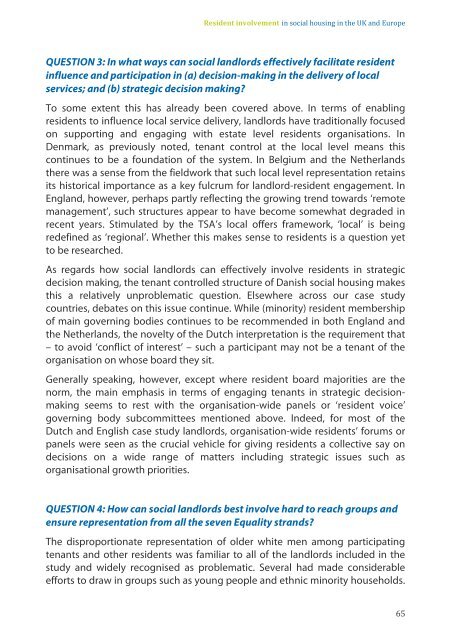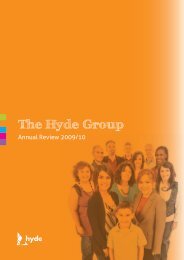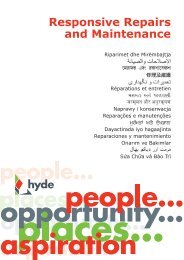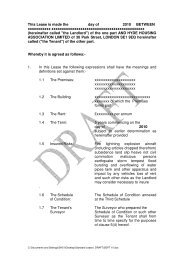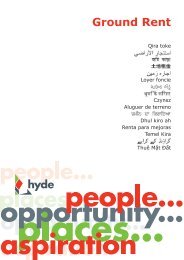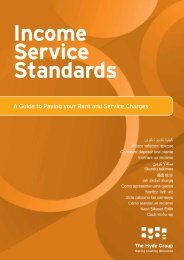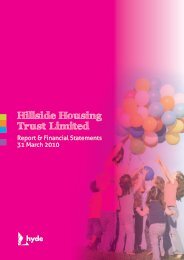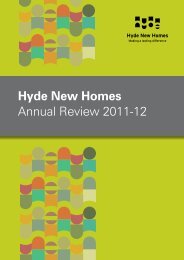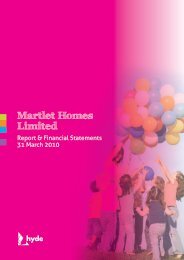Resident involvement - Hyde Housing Association
Resident involvement - Hyde Housing Association
Resident involvement - Hyde Housing Association
You also want an ePaper? Increase the reach of your titles
YUMPU automatically turns print PDFs into web optimized ePapers that Google loves.
<strong>Resident</strong> <strong>involvement</strong> in social housing in the UK and Europe<br />
QUESTION 3: In what ways can social landlords effectively facilitate resident<br />
influence and participation in (a) decision-making in the delivery of local<br />
services; and (b) strategic decision making?<br />
To some extent this has already been covered above. In terms of enabling<br />
residents to influence local service delivery, landlords have traditionally focused<br />
on supporting and engaging with estate level residents organisations. In<br />
Denmark, as previously noted, tenant control at the local level means this<br />
continues to be a foundation of the system. In Belgium and the Netherlands<br />
there was a sense from the fieldwork that such local level representation retains<br />
its historical importance as a key fulcrum for landlord-resident engagement. In<br />
England, however, perhaps partly reflecting the growing trend towards ‘remote<br />
management’, such structures appear to have become somewhat degraded in<br />
recent years. Stimulated by the TSA’s local offers framework, ‘local’ is being<br />
redefined as ‘regional’. Whether this makes sense to residents is a question yet<br />
to be researched.<br />
As regards how social landlords can effectively involve residents in strategic<br />
decision making, the tenant controlled structure of Danish social housing makes<br />
this a relatively unproblematic question. Elsewhere across our case study<br />
countries, debates on this issue continue. While (minority) resident membership<br />
of main governing bodies continues to be recommended in both England and<br />
the Netherlands, the novelty of the Dutch interpretation is the requirement that<br />
– to avoid ‘conflict of interest’ – such a participant may not be a tenant of the<br />
organisation on whose board they sit.<br />
Generally speaking, however, except where resident board majorities are the<br />
norm, the main emphasis in terms of engaging tenants in strategic decisionmaking<br />
seems to rest with the organisation-wide panels or ‘resident voice’<br />
governing body subcommittees mentioned above. Indeed, for most of the<br />
Dutch and English case study landlords, organisation-wide residents’ forums or<br />
panels were seen as the crucial vehicle for giving residents a collective say on<br />
decisions on a wide range of matters including strategic issues such as<br />
organisational growth priorities.<br />
QUESTION 4: How can social landlords best involve hard to reach groups and<br />
ensure representation from all the seven Equality strands?<br />
The disproportionate representation of older white men among participating<br />
tenants and other residents was familiar to all of the landlords included in the<br />
study and widely recognised as problematic. Several had made considerable<br />
efforts to draw in groups such as young people and ethnic minority households.<br />
65


